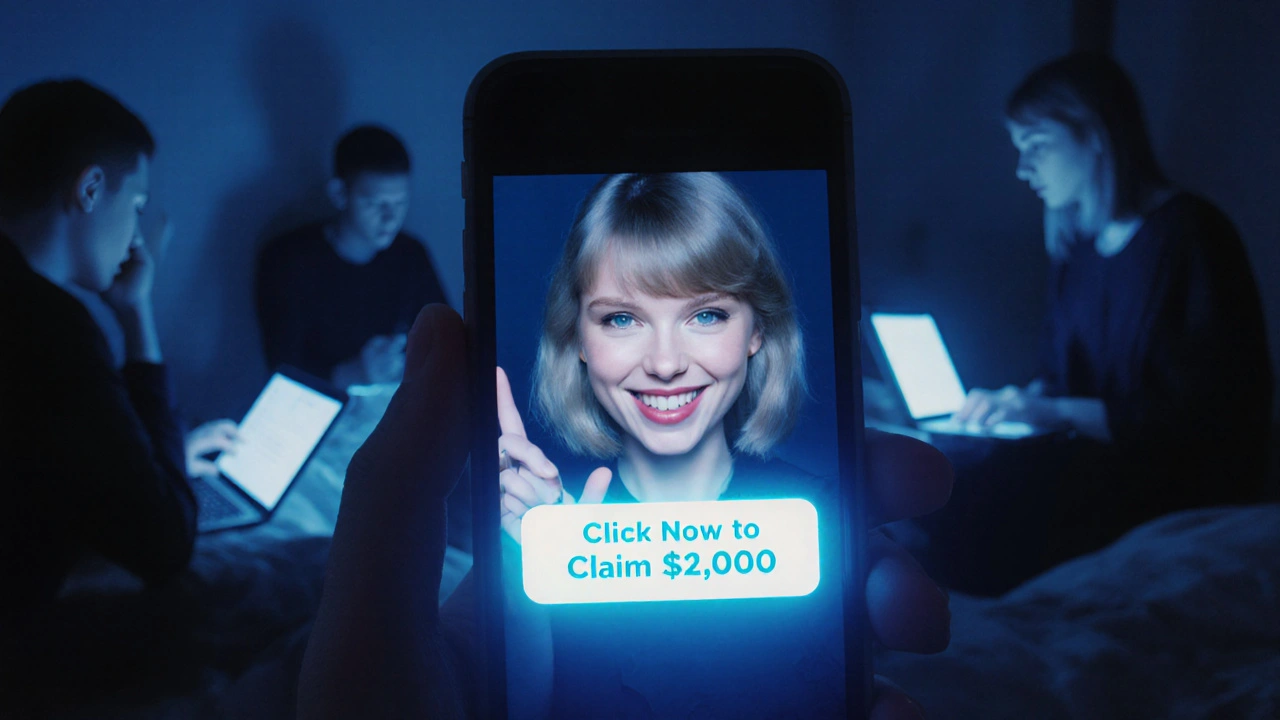Celebrity Endorsement Scams: How to Spot Fake Promotions and Avoid Losing Money
When a famous face promotes a crypto coin, a miracle weight-loss pill, or a "guaranteed" investment, it’s easy to believe it’s legit. But celebrity endorsement scams, fraudulent marketing schemes where public figures are paid or tricked into promoting fake products. Also known as influencer fraud, these scams exploit trust—your trust in the person, not the product. The truth? Most of these deals are empty. The celebrity might not even know they’re part of the scam. Or worse—they’re getting paid to push something they know is worthless.
These scams aren’t new, but they’ve exploded with crypto and online finance. You’ve probably seen videos of actors or athletes holding up wallets full of tokens, claiming they made millions. But here’s the catch: those tokens often have no real value, no team behind them, and no roadmap. The whole thing is built to pump and dump—get people to buy in fast, then vanish with the cash. And it works. People lose thousands because they saw someone they admire holding the product. Crypto scams, fraudulent investment schemes disguised as digital assets with fake backing or promises. Also known as rug pulls, they often rely on celebrity hype to appear credible. Even well-known names like Floyd Mayweather and Paris Hilton have been tied to these schemes—sometimes unknowingly, sometimes not.
It’s not just crypto. Fake skincare brands, weight-loss supplements, and "AI trading bots" all use the same trick. A quick Instagram post. A YouTube ad with a smiling face. A countdown timer saying "Only 10 spots left!" But if you dig deeper, the company has no physical address, no customer service, and zero reviews from real users. Online fraud, deceptive practices conducted over the internet to steal money or personal data. Also known as digital scams, they thrive on urgency and social proof. The goal? Make you act before you think. That’s why they use countdowns, fake testimonials, and celebrity faces—to override your common sense.
How do you protect yourself? First, check if the celebrity actually posted it. Many are impersonated. Look at their official accounts. If the post looks off—poor grammar, weird hashtags, or a link that doesn’t match their usual content—it’s likely fake. Second, search the product name + "scam" or "review." If dozens of people are warning others, listen. Third, never invest based on a video alone. Real companies don’t need a celebrity to sell you something that sounds too good to be true. If it were that easy, everyone would be rich.
You’ll find real stories in the posts below—people who lost money chasing a celebrity’s promise. You’ll also find guides on spotting fake ads, understanding crypto risks, and protecting your money online. No fluff. No hype. Just what you need to avoid becoming the next victim. These aren’t theoretical warnings. These are real cases. And the next scam is already being planned.
- November 18 2025
- 14 Comments
- Lucas Harrington
Celebrity Endorsement Scams: How Deepfakes Are Trickling Your Money
Deepfake celebrity scams are tricking millions into giving away money by faking endorsements from stars like Taylor Swift and Shah Rukh Khan. Learn how they work, how to spot them, and what to do if you’re targeted.
- Disney World Vacations (35)
- Kissimmee Florida (29)
- Florida travel (26)
- Crypto & Blockchain (10)
- Information & Privacy (5)
- Blockchain & Cryptocurrency (4)
- Disney Parks & Tips (3)
- Disney History (3)
- Travel (2)
- Travel Tips (2)
Categories
- January 2026 (6)
- December 2025 (29)
- November 2025 (41)
- October 2025 (16)
- September 2025 (6)
- August 2025 (3)
- July 2025 (3)
- June 2025 (2)
- May 2025 (2)
- April 2025 (1)
- March 2025 (6)
- February 2025 (11)
Archives
- Florida beaches
- Disney World
- Florida
- Florida travel
- Kissimmee demographics
- Kissimmee
- Kissimmee Florida
- Orlando tourism
- Disney park hours
- Disney World tips
- Disney vacations
- Disney 100
- theme park tips
- Disney celebration
- tourism
- Disney secrets
- Disney history
- travel
- Disney World crowd calendar
- Disney World cost

